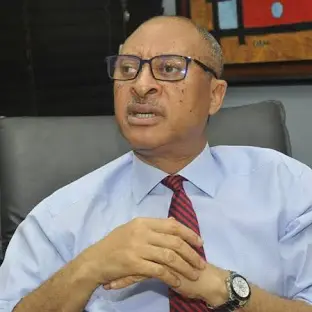Former Labour Party presidential aspirant Professor Pat Utomi has shared a deeply personal account of his ongoing battle with prostate cancer. Speaking during a webinar to commemorate International Men’s Day, Utomi revealed that his father died of cancer at the young age of 52, shaping his vigilance about his own health.
“My father passed away of cancer at age 52, hence I was very sensitive and always did my annual medical checkups, including prostate screening,” the 67-year-old economist and professor stated. He spoke to an audience that included cancer researchers, health experts, and stakeholders, shedding light on his personal fight against the disease.
Early Diagnosis and Treatment
Utomi recalled how routine medical checkups brought the disease to light. “At the onset of COVID-19, around 2020, my Prostate-Specific Antigen (PSA) was found to be elevated,” he said. Following further examinations, including a direct rectal examination, he received a prostate cancer diagnosis.
The diagnosis marked the beginning of a challenging but determined journey toward recovery. “A disease is a disease. What is the difference between malaria and cancer?” he remarked, emphasizing the importance of confronting illnesses without stigma or fear. Utomi underwent 45 sessions of radiotherapy, hormone therapy, and other medications, reporting significant progress. “Today, my PSA has dropped to a normal level. My hormone treatment will go on till next year,” he shared.
Raising Awareness Amid Ignorance
Utomi’s experience spurred him to address the widespread ignorance about prostate cancer, especially among men. “There are lots of men my age who have problems with their prostate but are hiding it and dying from it,” he lamented.
Despite being a relatively common condition among older men, prostate cancer awareness in Nigeria remains alarmingly low. Cultural stigma, lack of education, and inadequate healthcare infrastructure hinder men from seeking timely diagnoses and treatment.
Prostate cancer is one of the leading cancer types affecting men worldwide, with the World Health Organization estimating that one in eight men will be diagnosed with the condition at some point in their lives. In Nigeria, late-stage diagnoses are common, making treatment more difficult and expensive.
The Financial Burden of Cancer Treatment
Highlighting the financial strain faced by many patients, Utomi called for better public-private sector collaboration to make treatment accessible and affordable. “Treating cancer is expensive in Nigeria. We need investment in our health sector,” he noted. The country’s healthcare system has long struggled with underfunding and inadequate resources, exacerbating the challenges faced by cancer patients.
For many Nigerians, the cost of cancer care—spanning diagnosis, treatment, and follow-up—is prohibitive. The absence of widespread health insurance further worsens the situation, leaving most patients to fund their treatment out of pocket.
A Public Admission to Inspire Others
Utomi’s decision to publicly share his battle against cancer is a rare and courageous move. In a series of social media posts in August, he revealed how stress and his health condition forced him to step back from public engagements following the February 25 presidential election. “My phone was taken away to reduce stress and manage my cancer better,” he said at the time.
This candid admission, coupled with his advocacy for awareness and better healthcare policies, underscores his commitment to fighting the disease not just for himself but for others facing similar challenges.
Hope for the Future
Despite the obstacles, Utomi’s story is one of hope. His successful response to treatment serves as a reminder of the importance of early detection and proactive healthcare. Regular screenings, especially for men over 50, can significantly improve survival rates for prostate cancer.
Utomi’s revelation also highlights the need for a collective societal shift in how illnesses like cancer are perceived and addressed. By normalizing conversations around these issues, Nigeria can foster a culture of early detection and proactive treatment, ultimately saving lives.

